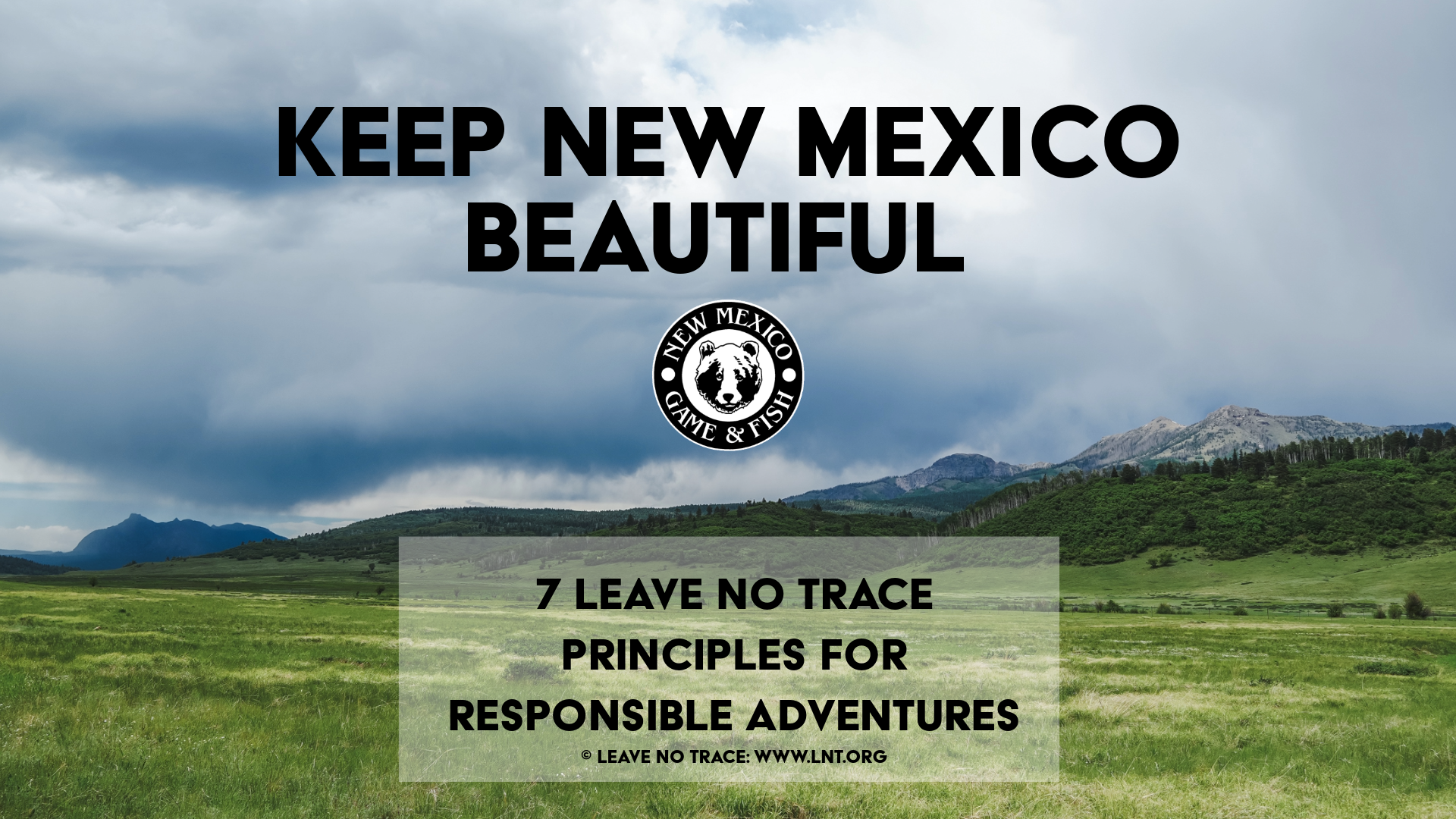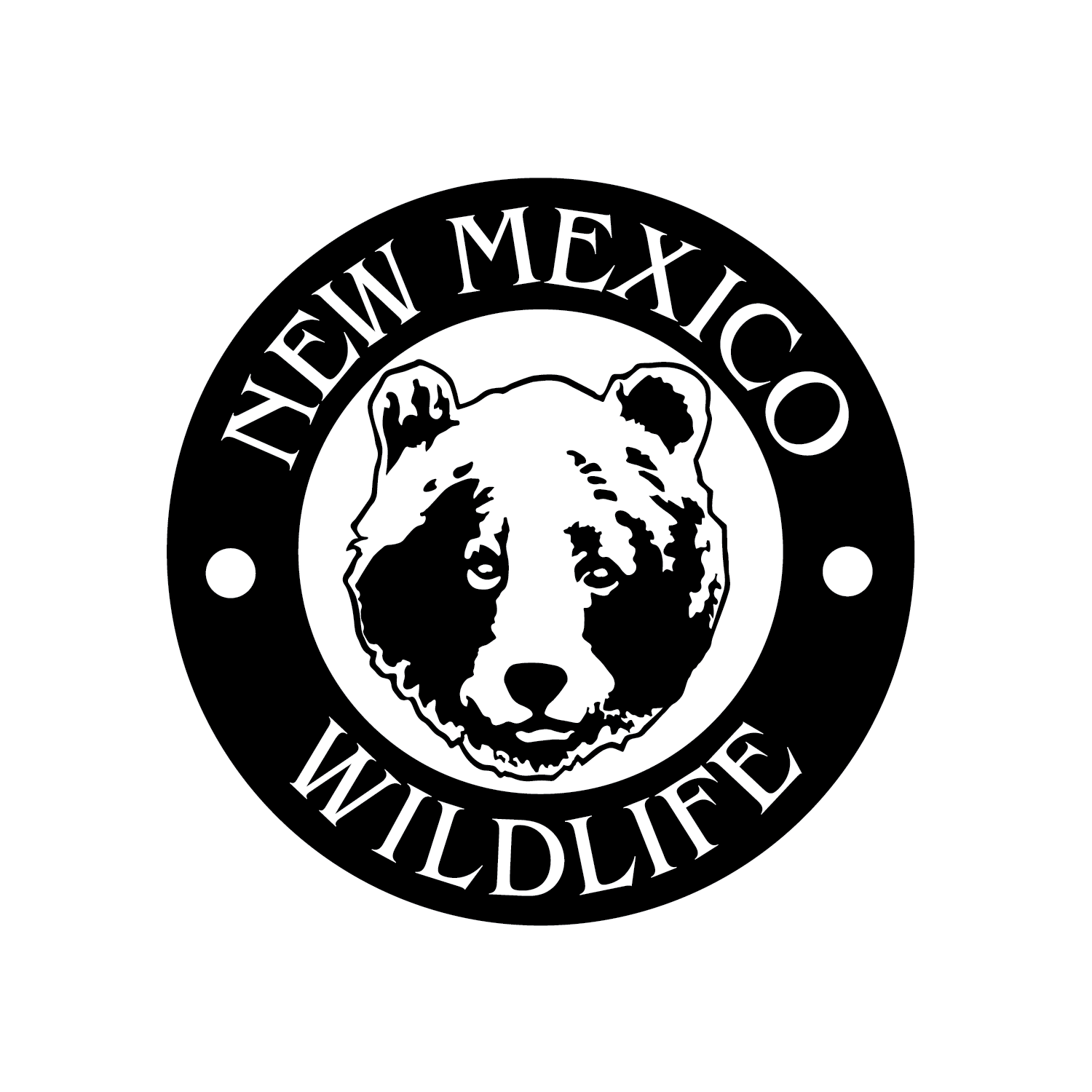You’re enjoying the outdoors and suddenly you see someone trying to pet Marty Moose… A pack of ATVs flies by across a pristine meadow… Another duck hunter shows up late and sets up right next to you… A pile of litter is dumped in the desert and Walter White has to clean it up!
You have probably seen some interesting – and disappointing – things if you’ve spent time outdoors in New Mexico. Whether you’re hunting, fishing, biking, using OHVs, hiking or camping , it’s critical each of us work toward protecting outdoor spaces by minimizing our impact. It’s not that hard to do! Just follow the seven “Leave No Trace” principles that encourage us to promote a culture of respect and responsibility among all outdoor enthusiasts. These guidelines help protect the wild and wonderful experiences we love and enjoy.

This series is in collaboration with the New Mexico Department of Game and Fish and © Leave No Trace, more information can be found on their website www.LNT.org.

It’s important to plan ahead and know the local regulations of the area you’ll be visiting. Poor planning not only results in a less enjoyable experience, but can also damage natural and cultural resources. Planning ahead, for example, with something as small as bringing a trash bag, can help minimize human impact.

The goal of traveling outdoors is to move through natural areas while avoiding unnecessary damage to the land. Travel damage occurs when certain protected areas are trampled beyond recovery. Protecting areas around waterways or staying on OHV-designated roads and not creating new paths with your vehicle can help protect New Mexico wildlife and their habitats.

This eastern collared lizard thanks you for packing out what you packed in. The waste humans create while enjoying the outdoors in New Mexico can cause irreparable damage, if not disposed of properly. Knowing the proper techniques to dispose of trash and waste can help protect these spaces, wildlife and water sources.

Leaving what we find in place helps preserve the ecosystem and the stories of the landscape. Preserve the past by leaving cultural artifacts as they are, not only for their historical significance but also for scientific purposes. Moving them can interrupt cultural value and scientific data that can shed historical insight into cultures in New Mexico.

Campfires are an important experience for every camper. However, many areas have been damaged by the overuse of fires or improper care when disposing of a fire. Responsible techniques can minimize our impact on the land, especially in fragile environments. Using existing fire rings, putting fires out with water and not dirt, and understanding fire restrictions help avoid further damage.

It’s exciting to see wildlife on our outdoor adventures, so it’s critical to minimize negative interactions that can impact their natural behaviors. Avoid unnecessary interactions such as feeding wildlife, not storing food properly, destroying natural habitats in protected spaces, approaching wildlife or not giving them enough distance.

One of the most important components of sharing the outdoors is to maintain courtesy toward others. Being considerate of others ensures everyone can enjoy nature no matter how they interact with it. A simple hello and yielding to other users can go a long way. Keeping noise like music or phone calls down helps the experience of other users. We all enjoy the outdoors – perhaps differently – but we all can work toward protecting New Mexico.

© Leave No Trace: www.LNT.org
